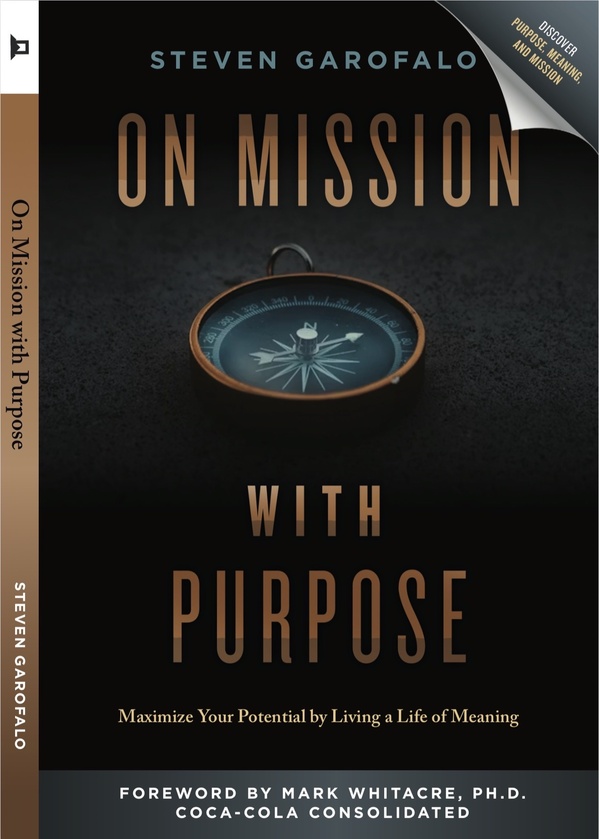In our specialized world we tend to have only one job. A a result, having a job in most cases leads to the monolithic mantra of making money and job security to maintain our life style apart from a purpose driven life. Today, I will show you that God encourages us not have one job, but why to have at two or more careers. Why? For diversification, security, and fulfillment. Let’s get started.
On June 18 of 2019, Census.gov published that about 13 million U.S. workers have more than one job; equating to 8% of workers at that time having multiple jobs. This is actually pretty biblical as King Solomon wrote “Cast your bread upon the waters, for you will find it after many days. Give a portion to seven, or even to eight, for you know not what disaster may happen on earth” (Ecclesiastes 11:12).
So, what exactly is Solomon saying, or better yet: “What is God telling us through Solomon in these two short verses?” I believe there are two central points to consider so let’s jump right in.
FIRST: In verse 1, Solomon says, “Cast your bread upon the waters”. This is actually a metaphorical expression taken from the grain trade and a seaport town. The verse illustrates the central point that successful prospects and a bold business venture are wise but carry risk. To get the full picture, let’s zoom out and look at verses 1-6, starting with verse one which says to cast your bread upon the waters. Casting your bread upon the waters is emphasizing the element of risk and uncertainty in commercial and agricultural enterprises which is necessary for success. In other words, there is no success without some risk. Personally, I don’t know of anyone who has been successful without first failing at least one to five times.
The proverbs in the prior chapter (10) deal with royalty and leaders, but in these here in VSS. 1-6, Solomon addresses “common people”. Solomon is provoking the average person in that as men and women of God, we must venture forth and take some risk if we are ever to realize a gain in business, vocation, ministry and in life. We are wise to step out in faith despite the fact that there is always a certain amount of risk. We can bury out talent in the ground, or take some risk and invest our gifts to multiply them for the glory of God.
Sadly, in our modern world, risk takers (when rewarded financially) are often looked down upon for having the rewards they they have accrued for having taken the energy, resources and risk to begin with. This is why I don’t believe in government careers. On the other hand, those with much today are often inflated by ego and pride at what they have achieved and fail to give credit to God for all they have earned. The truth is that we ought to work as hard and as smart as we can; taking risks and giving credit to God for the gifts and blessings He has given us along the way. In the end, we ought to help others less fortunate. That being said, let’s look at Solomon’s second main point found in verse 2.
SECOND: In verse 2, Solomon speaks to the value of diversification of vocation in light of mitigating risk. Solomon says to “Give a portion to seven, or even eight, for you know not what disaster may happen on earth”. This begs the question as to who or what are we to “give” a portion to? What does that even mean. Solomon is referring to investing with diversity but this verse. Simply put, Solomon is proclaiming that there is wisdom in diversified investments, because no one knows what calamity may befall one enterprise. For example, if you own a farm at the beach, a hurricane can wipe out your farm, so also invest in a mountain business.
In our modern day, we see such wisdom playing out with the advent of AI (artificial intelligence). If your job is somehow eliminated, what will you do? First, you and I need to look ahead and keep our skill sets up to date and not fall behind. The bottom line is that you are wise to look at other ways in which you can diversify your income and investments other than a singular vocation. This goes against modern thinking just as working remote went against the grain of mainstream mentality before the Covid Virus changed all that. In years past, before becoming a “specialist” culture and economy, having more than one job or vocation was normality. As for you and I today, we can be confident that God’s wisdom never becomes outdated, so neither does Solomon’s point(s) made in this passage.
BIBLICAL RISK
Biblically speaking, God makes clear through Solomon that life in all its unpredictability carries risks and there is no way around that. While wisdom cannot remove life’s uncertainties, it certainly can help us navigate through and help cope with those risks. Today, we looked at two key areas of uncertainty: First, in the area of finances, Solomon (Qohelet) encourages us to invest wisely. To “cast your bread on the surface of the waters” which is an image from maritime trading, which was a risky business at that time without the fish-finding radar technology we have today. We need to understand that fishing in biblical times (as it is today) can be a very profitable vocation but carries risk. As a wise investor we ought not always be averse to taking some risk, especially when there is genuine possibility of real gain (v.1). It’s part of life and the only way to get ahead and have a more rewarding life. Excess risk can bad, especially in our older years, but taking some risk can always be good. Risk to move to a new city, state or country can be good in our older years. Risk to start a business in retirement can be very good for our minds and our financial well being. Risk at most any time in life is biblical and can be exciting and rewarding.
God makes clear through Solomon that it’s actually a safeguard to diversity our investments rather than putting all of our proverbial edges into one basket (v.2).
In the end, Solomon notes that we was people in general are ignorant of God’s providential dealings in human affairs, as they are on the “path of the wind”. What did Solomon mean by this We as people do not know which of their ventures will succeed (v.6) or what calamities might come on the earth (v.2) and wipe out our investment(s) and gains. We should be engaged in diligent, active labor and avoid looking to “passive income” as a legitimate income source. Why? Because there is no such thing as “passive income”. If you leave any income source idol, it will eventually be taken over or surpassed by someone less passive than you. Such thinking is laziness, unwise, and a formula for failure as Solomon points out.
The NEB accurately reflects a very accurate interpretation in saying Ecclesiastes 11:1-2 this way: “Send your grain across the seas, and in time you will get a return. Divide your merchandise among seven ventures, eight maybe, since you do not know what disasters may occur on earth”. In reality, like the benefits that come from the seafaring trade of fishing, active participation and involvement in business gives a promise of some return because we are involved in it (v.1; cf. kings 9:26-28; Psalm 107:23). There is always the possibility and risk of “disaster” so every person should make prudent investments in numerous ventures (to seven, yes to eight) rather than put all his or her “eggs in one basket” (Ecclesiastes 11:2).
IN CONCLUSION: As we read today, God is encouraging us not have one job, but perhaps even two or more careers. Why? For diversification, security, and fulfillment. As a by-product, having more than job/vocation is more fulfilling and makes us much more productive. How do I know that? Most of you know that I have a small consulting practice and a non-profit called ReasonForTruth.Org. I also have written four books and started an online academy called EquippedAcademy.Com. It is tough? Absolutely. Is it time consuming? Very much so. Is it rewarding? You bet it is! I don’t watch sports teams or engage in what I deem fruitless recreation. I’m not putting recreation down, only fruitless recreation taken in excess as is the case with many if not most people in America and the West. In our specialized world we tend to have only one job. A a result, having a job in most cases leads to the monolithic mantra of making money and job security to maintain our life style apart from a purpose driven life. In a 2017 Harvard Business article (under Career Planning) titled, Why You Should Have (at Least) Two Careers by Kabir Sehgal on April 25, 2017 writes, “When you follow your curiosities, you will bring passion to your new careers, which will leave you more fulfilled. And by doing more than one job, you will end up doing all of them better”-Kabir Sehgal













